Why is a permeable driveway so important?
The problems facing urban drainage systems
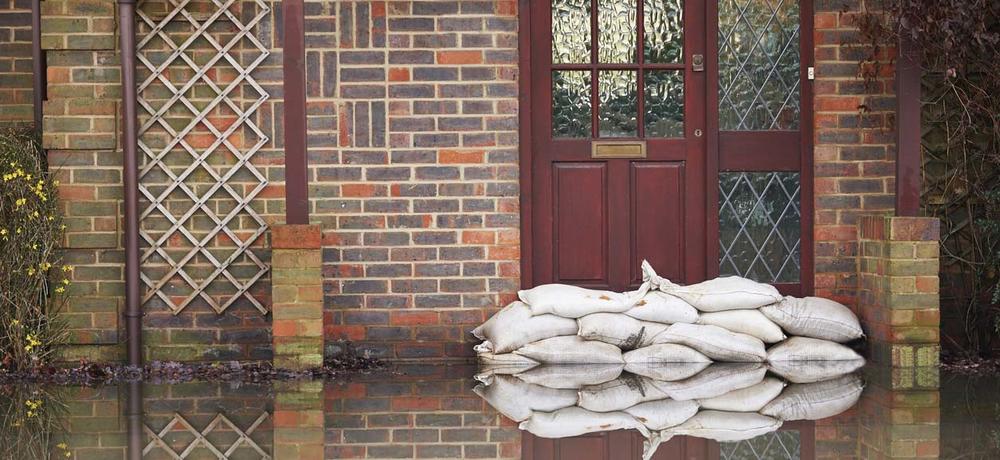
Climate change and increased urban expansion have put strain on drainage systems that simply were not designed to deal with the increased loads they face today.
Unsustainable drainage can have a number of troubling consequences, including increased flood risk, threatening infrastructure, water quality and personal and public property.
What other problems are urban drainage systems facing?
- Less vegetation alters surface runoff patterns and reduces drainage
- There are lots of natural depressions in the ground, which can hold water as large puddles for
- much longer
- Surface runoff is much quicker due to amount of paving and concrete
- Urban pollutants are more widespread
What is SUDS?
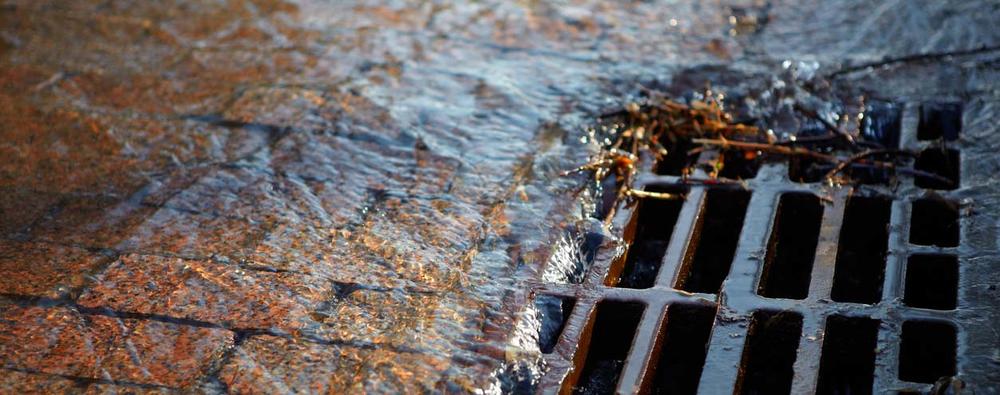
In recent years, there have been a number of developments in Sustainable Urban Drainage Systems, or SUDS.
SUDS aims to solve the problems listed above by encouraging land developers to decrease flow rates through a number of measures, including re-use of water and allowing the earth to absorb more.
SUDS promotes better management of water flow through urban environments, including the following:
- Source Control: Reduces the amount of water entering the drainage system.
- Retention: Providing better water storage elsewhere, such as in ponds.
- Pre-Treatment: Removes pollutants from the water
- Infiltration: Encouraging more water to soak into the ground
One of the key measures here is the encouraged use of permeable surfaces.
What is a permeable surface?
A permeable surface works like a natural water filter, containing countless tiny gaps that allow rainwater to sink into the ground below. This natural drainage approach helps prevent water from collecting on the surface or flowing away as runoff.
This is different from solid surfaces like concrete or asphalt, which act as barriers to water absorption. While a bit of surface water on your driveway might seem harmless enough, multiply this effect across hundreds of properties in an urban area, and you'll start to see why drainage becomes a serious concern.
Does SUDS include driveways?
Current regulations require all new driveways to meet SUDS regulations, especially in built-up residential areas. This requirement recognises that residential driveways make up a significant portion of urban surfaces, making them an important part of overall water management strategy.
What kinds of permeable driveway are there?
When planning a SUDS-compliant driveway, you have several options to choose from. Each approach offers its own solution to the drainage challenge, balancing factors like maintenance, appearance, and long-term performance. Let's examine these options in detail below.
Resin Bound System
Resin bound aggregate systems are becoming increasingly popular as a driveway surface for a number of reasons. In this system, the gravel (also known as aggregate) is mixed with a special resin before being spread evenly over the surface.
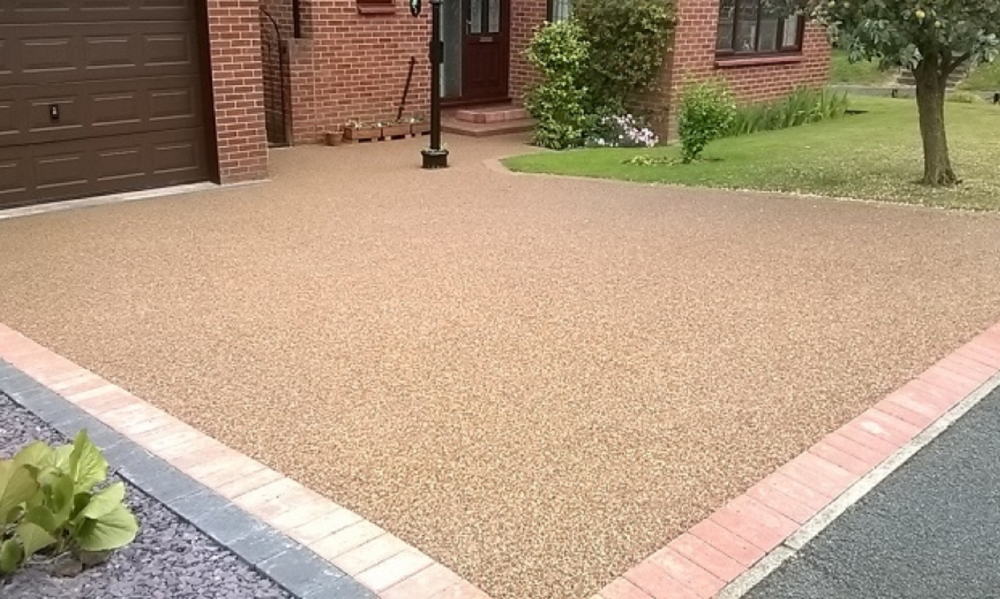
A resin bound system is porous, allowing water to pass through the small gaps between aggregates and resin.
Resin bound systems also bring other practical benefits:
- A smooth, flat finish
- Low maintenance
- No loose gravel means it cannot be redistributed and made uneven
- Weed and frost resistant
By combining aggregates of varying colours and sizes, a resin bound system can be a very attractive and highly versatile permeable surface.
A resin bound system contrasts with a resin bonded system which is another resin based aggregate system, except resin bonded consists of a solid layer of resin with aggregates spread on top. The result of this is an impermeable surface, which is therefore not a SUDS compliant solution.
Grass surface
A natural grass surface is one of the most absorbent surfaces you will find for rainwater, so its SUDS related benefits are fairly obvious.

There are a few challenges that should be considered if choosing a grass driveway:
- Being a driveway, the surface will be put under a lot of pressure from the weight of vehicles and people walking on it. This can ruin a beautiful grassy surface in no time if precautions aren’t taken.
- Like a lawn, a grass driveway will require maintenance such as cutting and watering if the climate requires it.
- If your vehicle is parked over the grass a lot, sunlight deprivation can discolour the grass quite severely.
One solution to make a grass driveway more practical is to install two strips of paving, brick or other hard material to serve as tyre paths. These may not be absorbent, but your drive will still have sufficient permeability from the grass to make it SUDS compliant.
Loose Gravel
One of the most common and perhaps easiest to install permeable driveway solutions is the use of simple loose gravel, chippings or other aggregates. These are simply spread across a prepared surface, leaving plenty of gaps between aggregates to allow for water absorption.
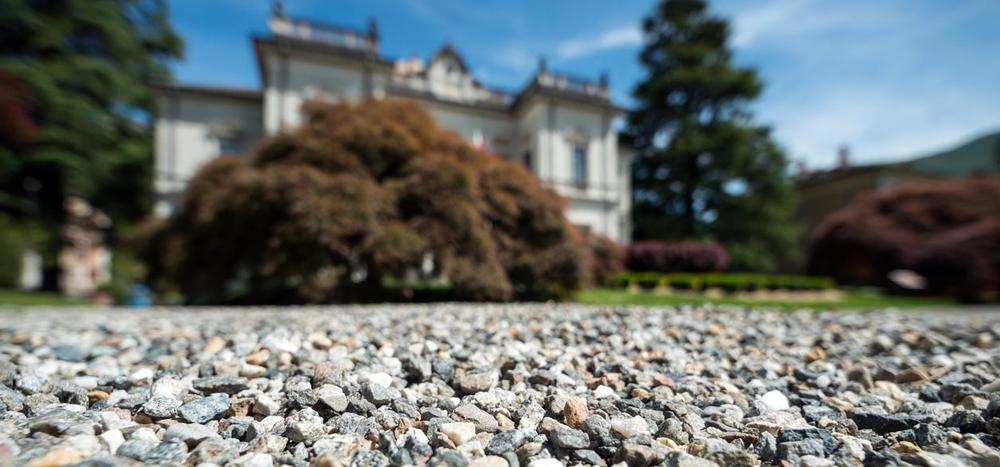
There are a number of benefits of loose gravel or aggregates:
- Fairly low cost
- Natural, attractive surface
- SUDS compliant
- Long lasting
However, there are some potential maintenance issues you should be aware of:
- Vehicles and pedestrians can move about loose aggregates fairly easily, so regular maintenance will be required to redistribute and keep it nice and tidy.
- Some aggregates may be lost over time by rain, wind, vehicles or footsteps, so you may be required to purchase more and top up every so often.
Plastic Grid Systems
Plastic grid systems are a useful way to keep permeable and loose gravel chippings tidy and in place. These are simply hard plastic webs, which are placed on top of the base surface and then filled with loose chippings.
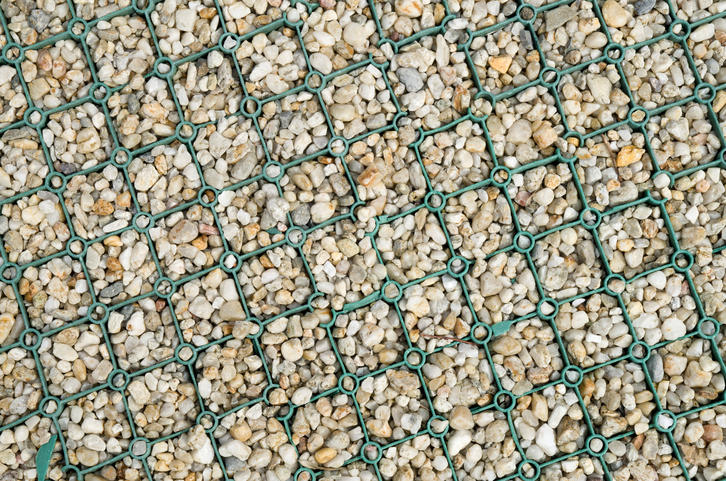
This solution allows you to take advantage of the porous characteristics of loose gravel and chippings, with a more secure placement, meaning less maintenance and redistribution is required.
The clear disadvantage of this solution is aesthetic. Depending upon personal preference, a plastic webbed grid may be unsightly to some, effectively cancelling out the natural visual appeal of aggregates.
Why we recommend a Resin Bound System
At Derbyshire Specialist Aggregates, we've found that resin bound systems provide the most complete solution for modern driveway needs. This option successfully combines the benefits of other surfaces while avoiding their common drawbacks.
A resin bound surface captures the natural appeal of loose gravel but adds stability and permanence. Unlike traditional loose stone that needs regular redistribution, or grass that demands constant upkeep, this surface maintains its appearance and functionality with minimal maintenance. It also provides the advantages of grid systems but avoids the negatives: no visible plastic netting to consider.
The growth of resin bound surfaces reflects their practicality in managing drainage whilst also producing an attractive surface to complement any size and style of property.
To find out more about resin bound systems browse our Knowledge Centre or get in touch with our helpful team today.
